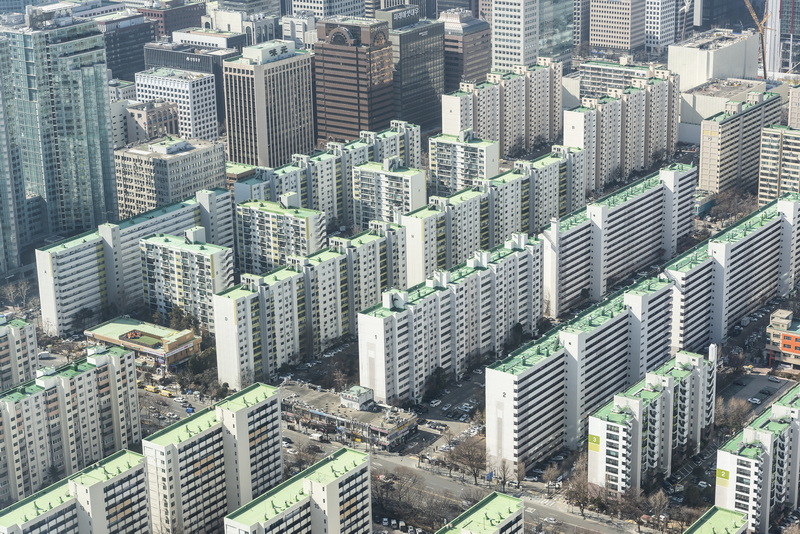Tapped Out
By William Urbanski
When I was growing up in Canada, my family’s house had a well that would occasionally freeze or run out entirely. It would freeze because Canada gets buck-wild cold in the winter, and it would run out in the summer when certain “citiots” (that is, idiots from the city) would come up and take 20-minute showers in the middle of summer. Whatever the reason, the house’s water system always seemed to fail at the worst possible time, causing virtually all household activities to come to a halt.
While the disadvantages of relying on well water seem painfully obvious, growing up with one imbued me with a keen awareness of exactly how much water is being used at all times, since we quickly figured out that not having access to water made it basically impossible to live like normal human beings.
As you might have heard, “the well running dry” pretty much sums up the situation that Gwangju is facing right now. When the inevitable water restrictions come to pass, it will be an inconvenience that will have us looking back fondly of the good old days of mere trucker strikes and Covid-19 lockdowns. It will also be a chance to examine, on a granular level, how we got into this mess in the first place.
Au Revoir, Reservoir
While the reason for Gwangju’s water woes is purportedly due to global warming and weather anomalies, given Gwangju’s staggeringly high number of high-rise apartment buildings (that’s to say those with more than ten floors), it’s a small miracle that the city’s water infrastructure didn’t completely collapse years ago. To be fair, Gwangju isn’t the only city in the world that has an abundance of tall apartment buildings, but it’s also another city that just can’t seem to stop building them.
Large apartment buildings (and complexes) are often seen as the panacea to a lack of housing, but the problems they create are myriad. First of all, they’re expensive to build, the costs of which get passed on to the renters or buyers. They’re aesthetically pretty awful to look it. They also create areas of incredibly high population density that act as focal points of extreme traffic congestion, energy consumption and, you guessed it, water use. You can’t just jam-pack a complex of massive apartment towers somewhere and expect it to not negatively impact the water table.

Boxed In
Besides the objective fact that cramming a bunch of people together increases resource use, what’s not so obvious is the way that apartment dwelling leads to an outlook on life that’s disconnected from pesky notions such as “nature” and “community.” To better understand this, let’s walk through an average day in the life of someone who lives in an apartment in Gwangju. The individual wakes up in a box-shaped room after spending the night on a box-shaped bed. She walks out into her square kitchen for breakfast, gets dressed, and steps in another box that takes her down to a big, rectangular underground parking garage where she gets into a metal box that whisks her away to an office building that, you guessed it, looks like one more giant box. All these boxes are all climate controlled and physically separated from the outdoors. Actually, it sounds not too bad, right?
Well here’s the problem: During the average day, what a person like this doesn’t do is have meaningful interactions with her neighbors or connect with the natural environment. Not only is there more or less complete isolation from people who live meters away, but this lifestyle slowly conditions a person to see the natural world as something we must be protected from at all costs. When it comes to water use, it’s really no surprise that the average person doesn’t worry much about how many liters they use per day because they are almost completely removed from how their water use connects with the bigger picture and the water cycle in general.
So, there isn’t much question that high-rise apartment living leads to isolation, detachment from the community, and also increased resource use. But there’s another factor: In case you haven’t noticed, apartments in Gwangju aren’t exactly cheap (even when they collapse mid-construction, cough, cough, I-Park, cough, cough), and someone who drops seven hundred grand on a 100-square-meter apartment isn’t going to worry about using an extra liter or ten of water. After all, he or she is a special, successful person who can use as much electricity, gas, and water as they like, thank you very much.
Uncharted Waters
We should all strive to use as few resources as possible, but the problem with saying that the solution to Gwangju’s water woes is for each individual to reduce their water use is that it obfuscates the fact that the water shortage was caused not by a bunch of people leaving the faucet on while brushing their teeth, but by unbalanced city planning, policy failure, and the lack of community created by living in isolated boxes. I’ve grown to hate the words “sustainable” and “unsustainable,” so let’s just say that the current high-rise apartment situation is untenable, and continuing to build these things, nudging people towards adopting a resource-intensive, isolated lifestyle will only exacerbate the water problem.
It’s looking like pretty soon the people of Gwangju are going to have to figure out how to get by with a lot less water. The long-term solution to the city’s hydro headaches may involve drilling deeper underground or building a massive pipeline. But on an individual level, probably the best thing to be done is to take a walk in the forest and stop to chat with your neighbors on the way there.
The Author
William Urbanski is the managing editor of the Gwangju News. He is married and can use chopsticks. Instagram: @will_il_gatto.







